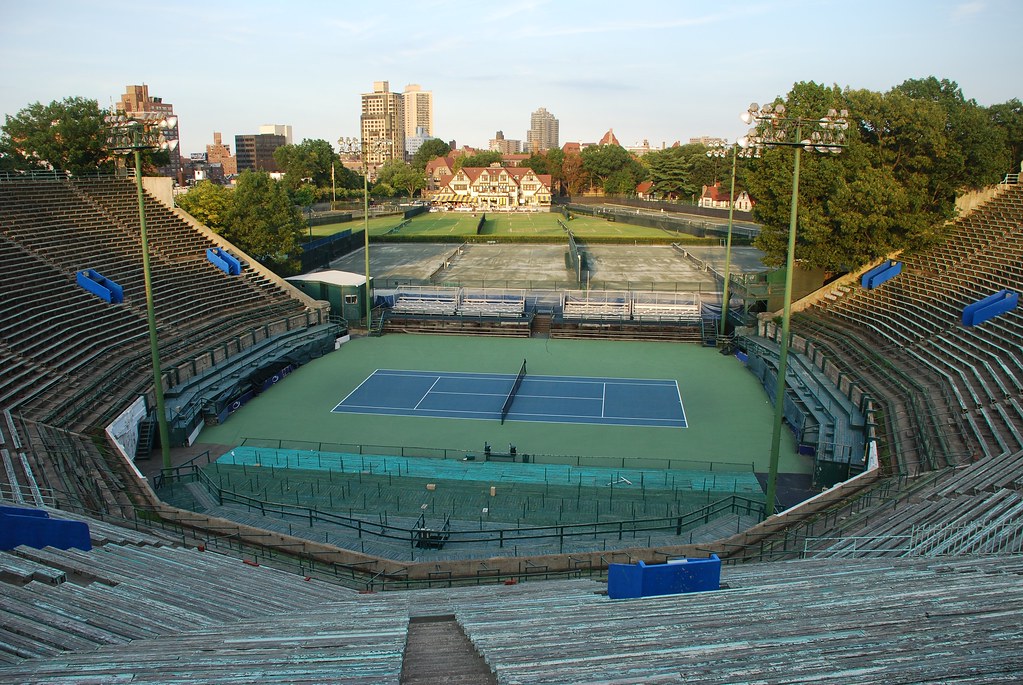Despite being a community pillar for over 100 years, Forest Hills Stadium has been bombarded with noise complaints and fines for volume increases. The historic venue in the middle of the borough’s Forest Hills Gardens faces superfluous backlash for the concerts hosted and its effect on the surrounding community.
Forest Hills Stadium represents a rich history in both sports and music. The beloved venue holds memories of athletes like Althea Gibson and Billie Jean King while boasting performances by The Beatles, Dolly Parton, Drake and Louis Tomlinson.
Built in 1923, as America’s first tennis stadium, the venue was the birthplace of the annual tennis tournament, U.S. Open, until the 1960’s when it was converted to a concert venue.
Residents in the surrounding areas are growing tired of the constant noise and influx of visitors to the community. Homeowners close to the venue have called 311 numerous times to report the noise levels and expressed growing concerns about the number of shows at the stadium.
According to Gothamist, the number of complaints is only growing with angry residents “flooding 311 pretty much every time performers take the stage and concertgoers trek through the neighborhood.”
Even though homeowners take issue with the noise levels of the stadium, most aren’t proposing to end concerts altogether because it isn’t fair to the community or the stadium for shows to completely end.
Historically, the stadium has made changes to the infrastructure and policies to accommodate residents, yet some remain disgruntled, pursuing legal action against the stadium.
Additionally, members of the neighborhood have founded “Concerned Citizens of Forest Hills,” a not-for-profit organization that pushes for the stadium to place limits on concerts and address the subsequent noise, traffic, trash and parking issues.
In response to community concerns, the venue has implemented a sharp curfew of 10 p.m. on most shows, when staff urge concertgoers to the nearest exit out of the stadium. The venue is backed by solid security teams ensuring that fans are not loitering around and trespassing on private property.
Officials representing the stadium have also expressed their awareness of the community’s needs and are working towards mitigating the noise problem by soundproofing around the venue.
“This has been an ongoing project where we make continual improvements every year…We’re gonna do another whole ‘nother round of sound mitigation to try again to make it a little bit better,” Mike Luba, President of Forest Hills Stadium said.
Despite not having an official limit on the number of shows, Forest Hills Stadium has tried to reduce the amount of concerts held in a year, hurting not only their business but also the small businesses surrounding the venue.
The stadium is located within walking distance of Austin Street, a lively street booming with businesses and restaurants.
Many homeowners are concerned about the possible decrease in property value surrounding the stadium due to the noise issues and nightlife, but the stadium has had a positive effect on the community by increasing tax revenue and boosting business.
The 13,000-capacity venue draws in large crowds each show, helping to sustain the businesses surrounding it, something that small business owners are incredibly thankful for.
The stadium has won over a large part of the community by increasing revenue, creating opportunities for fans to enjoy shows and most importantly, by implementing changes to improve the venue and combat noise issues.







